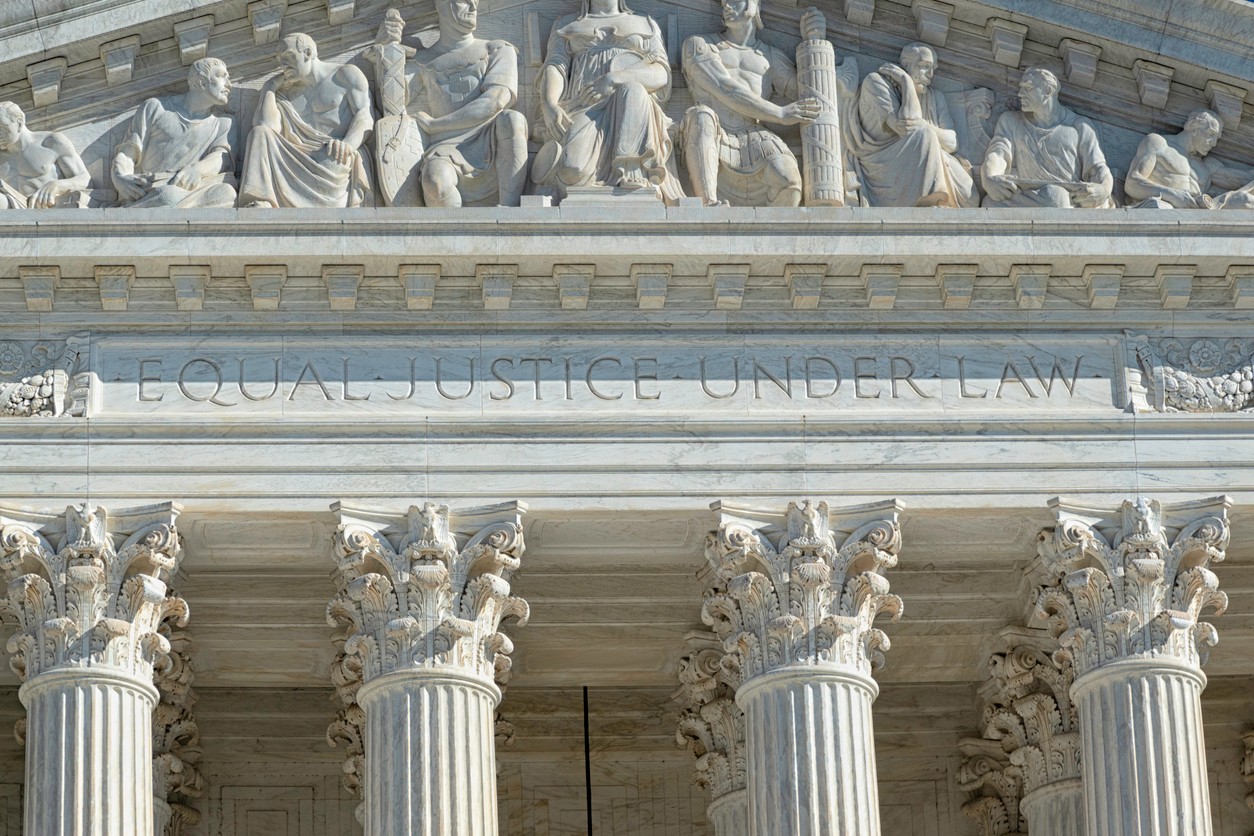
Slate: How the Supreme Court has shaped the US economy
“The ways that Supreme Court decisions impact Americans’ rights and freedoms tend to get headlines — but there’s another way the court shapes our lives that is often overlooked. Since the country’s founding, the Supreme Court has played a significant role in shaping the U.S. economy by managing the mix of government and markets,” wrote Joseph Tomain, dean emeritus at the University of Cincinnati College of Law, and Sidney Shapiro, professor at the Wake Forest University School of Law, in their recent article “How the Supreme Court has shaped the US economy” for Slate.com.
In the article, which is based on their new book, "How Government Built America," the authors make the case that the court at times has been pro-market and protected business against regulation, but it has also facilitated the capacity of government to promote and ensure the country’s fundamental values of equality, liberty, fairness and the public interest when markets were performing in ways inconsistent with those values.
Tomain and Shapiro provide a short overview of the Supreme Court and its’ rulings from the country’s founding to the Great Depression to the Great Society to today, and the impact of those decisions on both markets and society in general. They take a close examination of the Roberts court, most recently known for overturning Roe v. Wade, expanding gun rights, restricting voting and gutting affirmative action. They note that the Roberts Court has also reversed the long trend of deferring to the mix of government and markets favored by the democratic process for most of the 20th century.
The authors discuss how Supreme Courts have pushed back after Congress expanded government to counteract market conditions inconsistent with the country’s fundamental values, recognizing that government overreach can occur. However, the Supreme Court exists to rein it back in in such circumstances.
Read Tomain and Shapiro’s editorial “How the Supreme Court has shaped the US economy” for more insight into their perspective.
Lead photo: US Supreme Court (istockphoto.com)
Related Stories
State Department Delegation For Discussion On Foreign Policy
February 18, 2002
In what was billed as the most important delegation of the year in the U.S. Department of State's International Visitor Program, a group of 21 representatives from some of the world's most conflict-ridden regions participated in a special human rights program at the College of Law on Feb. 15
PROFILE: Co-op Winner Seeks New Homes for Reptilian Roomies
November 10, 2002
Co-oping has been nothing but good news for UC Honors-PLUS senior Zach Osborne. It's proving to be not quite as auspicious for the 11 reptiles he keeps as pets.
Bono, Chris Tucker Visit UC To Discuss Africa
December 5, 2002
U2's Bono and comedian-actor Chris Tucker led a delegation from the DATA organization who came to UC to talk about potentially catastrophic problems in Africa.
UC Law Students Release Ohio Death Penalty Study
January 16, 2003
Students from the UC College of Law's Urban Justice Institute released a study of Ohio's death penalty system that argues that serious reform is needed to protect against the possibility of executing an innocent individual.
State Department Forum Features World View on U.S. Policy
January 28, 2003
A global reaction to the latest developments in the U.S. war on terror and other foreign policy developments will be available when 19 visitors on a State Department-sponsored tour of the United States come to the UC College of Law for a forum on Jan. 31.
UC Research Spurs Lawmakers to Propose 14th Amendment Vote
February 4, 2003
Ohio may finally ratify the 14th Amendment, after research from UC's Urban Justice Institute showed that a pair of votes 135 years ago left Ohio's approval in doubt.
Law Alum to Speak on African-Americans in Civil War
February 6, 2003
Bernard Siler, a 1978 graduate of the UC College of Law, will be the featured speaker at the college's 2003 Minorty Law Day program. Siler will talk about his historical interest in the Civil War and the role of African-American soldiers.
PROFILE: The Full Story on Taxes
February 24, 2003
Paul Caron of the UC College of Law has turned his interest in tax policy and better ways to teach it into a new series of legal textbooks for one of the nation's largest legal education publishers.
UC Students' Work Has Ohio on Verge of Historic Vote
February 24, 2003
Ohio legislators are expected this week to confer their approval upon the 14th Amendment, laying to rest historical questions about Ohio's stance on the issue that were raised through research by UC law students.
Spring 2003 Study Abroad at UC
March 3, 2003
Globalization, rather than socialization and sun, will be the priority for more than 220 students heading overseas this spring.
